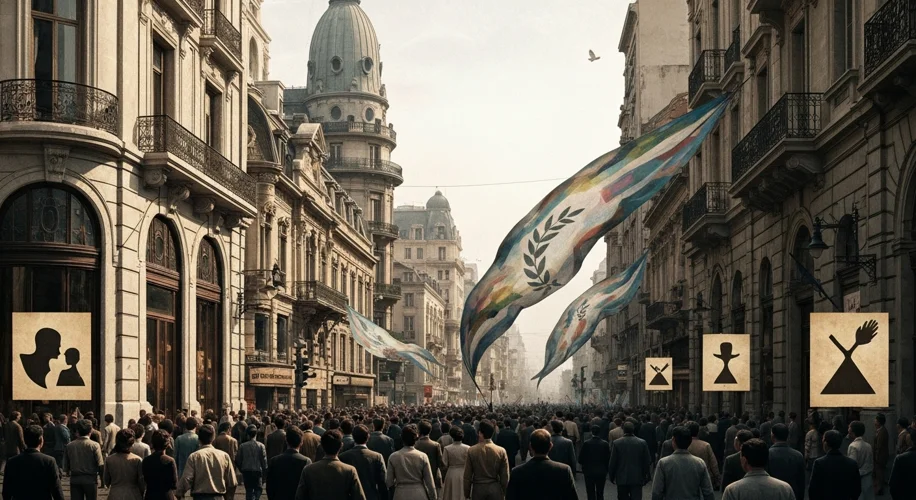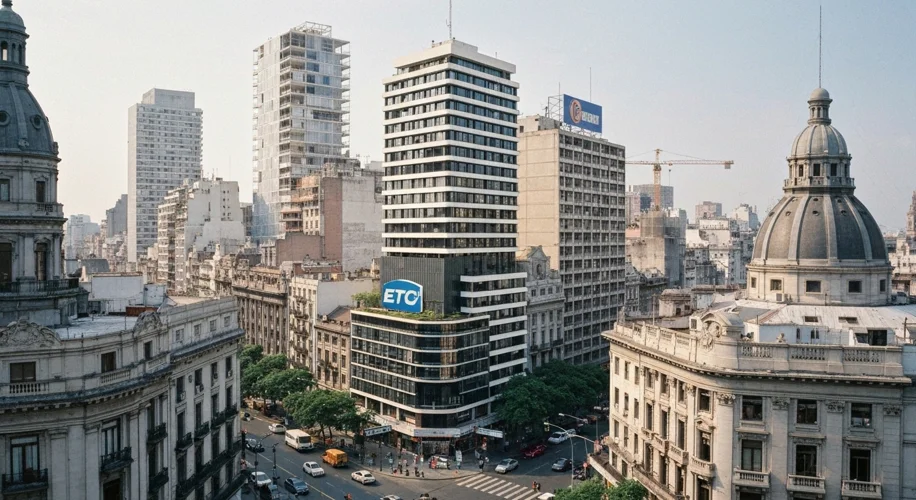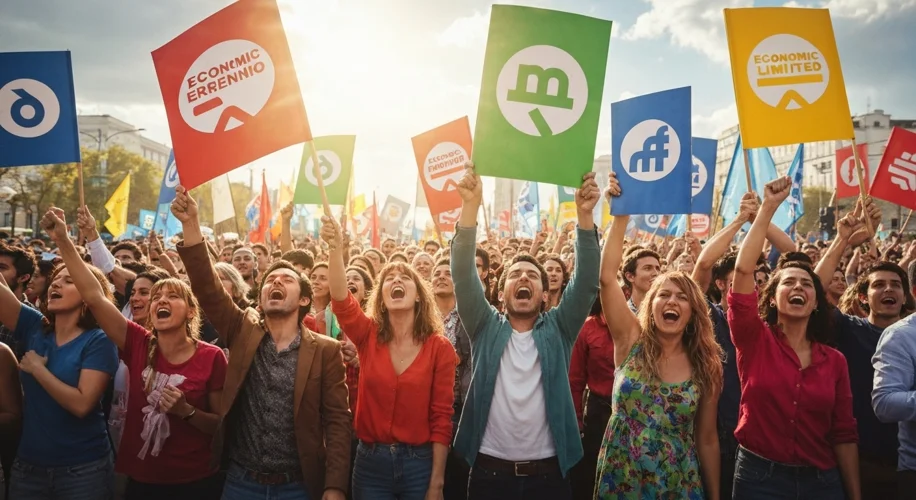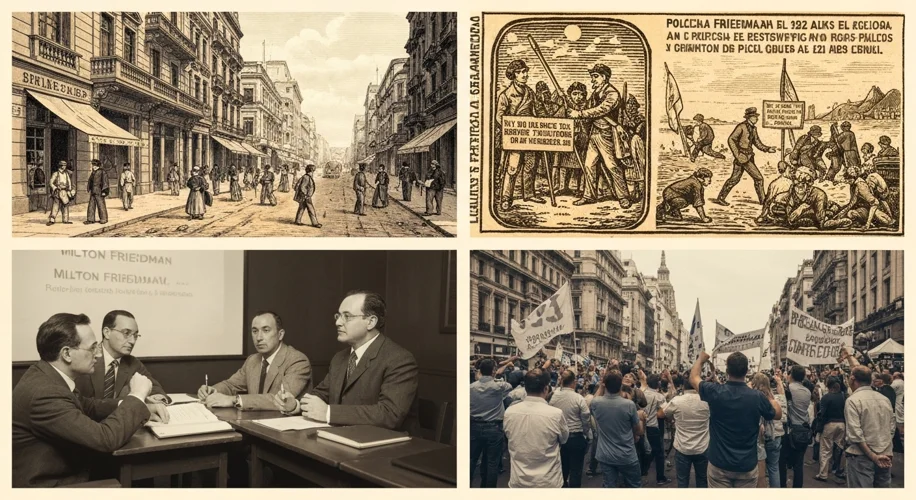Argentina, a land of vast pampas and passionate people, has long been a fertile ground for radical ideas. Among these, the siren song of libertarianism, or radical economic liberalism, has echoed through its tumultuous history, promising freedom and prosperity but often leading to turbulent shores. This is a story of how these ideas took root, bloomed, and sometimes withered in the Argentine soil throughout the 20th century.
A Nation Born of Dreams and Discord
To understand Argentina’s flirtation with libertarianism, we must first cast our gaze back to its origins. Unlike its more centrally governed Latin American neighbors, Argentina was forged by a unique blend of European immigration, particularly from Spain and Italy, and a frontier spirit. This influx brought diverse intellectual currents, including classical liberalism, which championed free markets, individual liberty, and limited government.
By the early 20th century, Argentina was a rising star, an agricultural powerhouse feeding Europe. Its economic policies, largely driven by export-oriented agriculture and a relatively open trade regime, seemed to validate these liberal ideas. Yet, beneath the surface, a powerful oligarchy controlled vast swathes of land, and social inequalities festered. This tension would become a recurring theme.
The Peronist Whirlwind and the Echoes of the Right
The mid-20th century brought a seismic shift with the rise of Juan Domingo Perón. Peronism, a complex ideology often described as a form of social justice nationalism, represented a decisive break from the laissez-faire policies of the past. It championed state intervention, industrialization, and robust social welfare programs. This was the antithesis of libertarianism. However, in its wake, and as a reaction to it, elements of more radical, free-market thinking found a new, albeit often underground, audience.

During the Peronist era and the subsequent periods of military dictatorships, the space for overt libertarian discourse was often constrained. Yet, intellectuals and economists, sometimes operating in exile or within academic circles, continued to refine and disseminate ideas that emphasized individual economic freedom. Figures like Alberto Benegas Lynch (Sr.) became important proponents, advocating for property rights, free enterprise, and fiscal responsibility.
The Economic Crises and the Rise of the “Chicago Boys” Analogue
Argentina’s economic history is a dramatic saga of boom and bust, hyperinflation, sovereign defaults, and recurrent crises. These cycles often led to periods of intense public questioning of state intervention and statist policies. This created openings for alternative economic philosophies.
In the late 1970s and early 1980s, during the brutal military dictatorship (1976-1983), a group of economists trained at the University of Chicago, often referred to as Argentina’s “Chicago Boys,” gained significant influence. Influenced by Milton Friedman and Friedrich Hayek, they pushed for privatization, deregulation, and fiscal austerity. While their implementation was marred by the regime’s authoritarianism and human rights abuses, their ideas represented a strong current of market-oriented reforms.
However, the economic outcomes were often disappointing, marked by high inflation and debt, leading to skepticism about the pure application of these doctrines. The return to democracy in 1983 was a moment of hope, but the underlying economic challenges persisted.
The Menem Era: A Brief Libertarian Summer?
The 1990s under President Carlos Menem presented perhaps the most explicit embrace of market-oriented policies in Argentina’s modern history. Driven by the need to combat hyperinflation and restore economic stability, Menem’s government implemented a series of privatizations, liberalized trade, and adopted a currency convertibility plan that pegged the Argentine peso to the US dollar.
This period saw a significant reduction in inflation and a surge in foreign investment. Many hailed it as a victory for liberal economic principles. However, critics pointed to rising unemployment, increased social inequality, and a growing dependence on foreign capital. The convertibility plan, while initially successful, created rigidities that proved unsustainable when external shocks hit.

The decade ended with a severe economic crisis in 2001-2002, which led to a dramatic devaluation of the peso, a sovereign debt default, and widespread social unrest. This collapse severely damaged the credibility of the market-oriented reforms, pushing Argentina back towards more interventionist policies.
The 21st Century: A Resurgence of Radical Ideas
In recent decades, Argentina has continued to grapple with economic instability, high inflation, and political polarization. This environment has seen a resurgence of interest in libertarian and classical liberal thought, often framed as a response to perceived state overreach and economic mismanagement.
Figures like Javier Milei, an economist and politician, have risen to prominence, explicitly advocating for radical free-market reforms, including dollarization of the economy, drastic cuts to public spending, and a rollback of state regulations. Milei’s electoral success in recent years, culminating in his presidential victory in 2023, signals a significant shift in the political landscape and a renewed appetite among a segment of the population for these ideas. His supporters see him as a liberator, a radical break from a failed status quo.

However, the challenges remain immense. Implementing such radical reforms in a country with deep-seated structural issues, powerful vested interests, and a history of economic volatility is a monumental task. The debate over the role of the state versus the market in Argentina is far from over. The country stands at a crossroads, its future shaped by the enduring tension between the promise of liberty and the complex realities of governance.
Argentina’s libertarian journey is a testament to the enduring power of ideas, the cyclical nature of economic policy, and the persistent human desire for freedom. Whether the current wave of libertarian sentiment will lead to sustained prosperity or another chapter in the nation’s complex economic saga remains to be seen. It’s a story that continues to unfold, etched in the very soul of Argentina.

